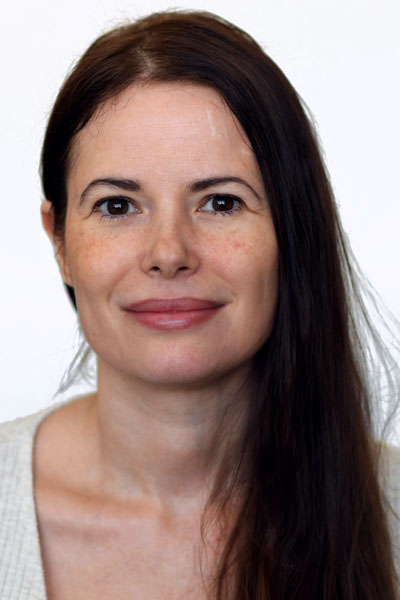
Navigation auf uzh.ch
Navigation auf uzh.ch

Désirée Gmür has specialized in economic, ecological and legal anthropology (esp. from feminist political ecology and new institutionalist theoretical perspectives). Her research foci are: natural resources governance and management, local institutions and knowledge (esp. common property institutions regarding common pool resources, local ecological knowledge) and transformations, coping and adaptation strategies in crises, conservation, disasters and climate change, large-scale land acquisitions/investments, agro-industrial transformations, food security/sustainability, food systems, innovation (esp. also institutional innovations), anthropology of entrepreneurship, constitutionality and participation processes (f.ex. in resource conflict resolution), anthropology in sustainable architecture and sustainable cities, anthropology of negotiation, mediation and conflict resolution
East Africa: Tanzania, West Africa: Senegal and Central Asia: Kazakhstan
Désirée Gmür studied social anthropology, geography and economic and social history (Master of Arts, Licentiata philosophiae) at the University of Zurich. For her Master thesis she did research on Tanzanian conservation policies (more specific on a community-based conservation project in villages bordering Ruaha National Park in the Iringa region) and their implications for local livelihoods. Her research contributes to debates on participatory conservation/resource management and development in that it not only shows how institutions that seem to be participatory on paper, in fact exclude significant groups of the communities in which they operate, such as women (in this case especially women from pastoralist groups) but also how local power relations play out in participation schemes, and how they are acquired by local elites. It further shows that if governments and conservation organizations are not taking the participation of local people in conservation seriously, by not really devolving power over wildlife and other resources to the local level, development and conservation alike are hampered. From 2014 to 2019 she conducted her PhD research in Tanzania on a large-scale forestry investment in the Kilolo district as part of the SNF-funded research project "Large Scale Land Acquisitions and Gender in Africa" at the Institute of Social Anthropology at the University of Bern, and completed her PhD in 2020. Her research among Wahehe and Wabena groups sheds light on the strategies of companies involved in land deals, as well as on local reactions and strategies (f.ex. institution shopping of national conservation laws, contestation of traditional inheritance rules). Women have largely been left out in land deal negotiations and are confronted with different levels of grabs by different men (members in the houeshold, family, clan, investor). It shows that women's already difficult position in society and economy is getting more vulnerable and less resilient due to such investments and that their capacity to react and resist to external and internal shocks and hazards in a livelihood system that was already under stress before the investment is even more reduced by the investment. From 2020 to 2023 Désirée Gmür was a postdoctoral researcher at the Institute of Social Anthropology at the University of Bern in the SNF-funded Sinergia project "Foodways in Senegal". She did research in the Senegal river valley on the continuities, ruptures and transformation of local food systems. She looked at the impact of agro-industrial developments and transformations, conservation initiatives and climate change on local food systems, food sustainability, household nutrition and food security and coping strategies among Fulani groups. This research builds the base for her habilitation which is planned to be completed in spring 2024. Since May 2023 she is Oberassistentin of Prof. Dr. Peter Finke at the ISEK whereby she adds a Central Asian research focus to her African expertise, mainly focusing on Kazakhstan, doing research on mechanisms which create efficient institutions for cooperation, institutional innovations, cooperation and competition among pastoralists as well as property relations but also on disasters and climate change and the role of local knowledge in disaster risk reduction.